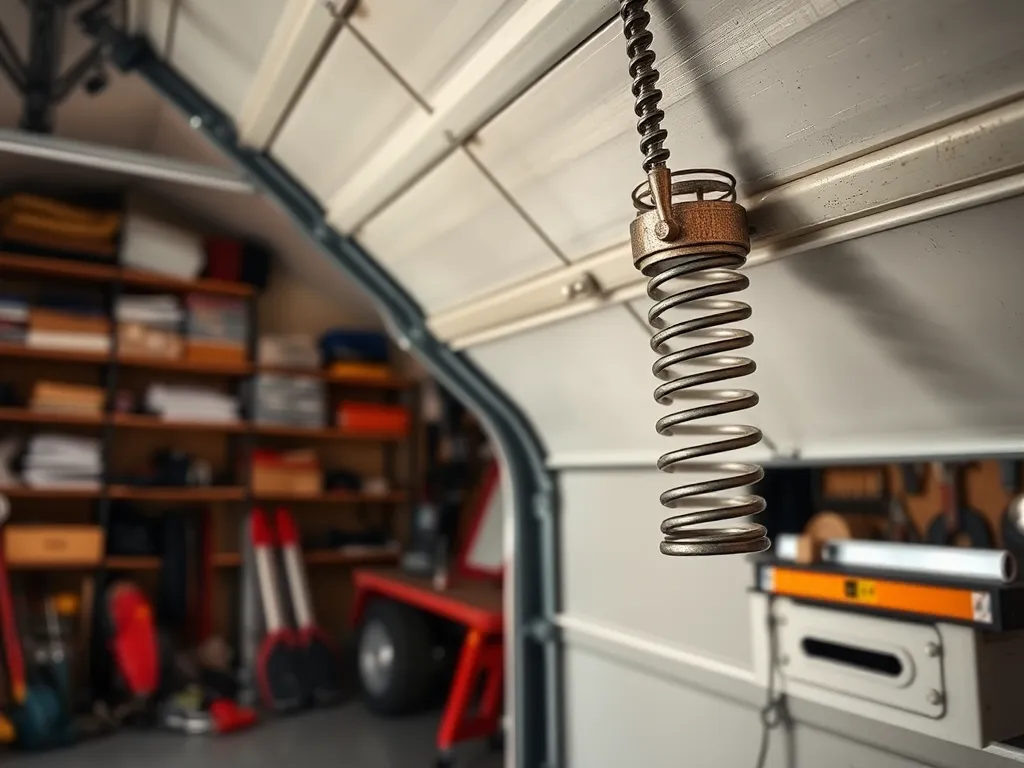Understanding Signs of Imbalanced Tension in Garage Doors

Essential Guide to Garage Door Maintenance
Garage Door Maintenance is critical for ensuring the longevity and optimal performance of your garage door system. Regular maintenance helps prevent costly repairs and improves the safety and security of your home. Neglecting garage door care can lead to a variety of complications, making it essential for homeowners to understand the best practices involved in maintaining this crucial part of their property.
Recognizing spring fatigue signs in garage doors can prevent costly replacements and ensure smooth operation year-round.
There are various aspects of Garage Door Maintenance that require attention, including visual inspections, lubrication of moving parts, and ensuring that safety features are functioning properly. Homeowners should develop a routine that includes checking the alignment of the door, the condition of the springs and cables, and the performance of the opener. Such proactive measures can significantly enhance the functionality and lifespan of your garage door.
Additionally, Garage Door Maintenance also involves being able to identify common issues that may arise over time. For instance, imbalanced tension can lead to significant operational problems. Regular checks can help spot these issues early, allowing for timely repairs. It's not just about fixing problems but also about preventing them from occurring in the first place.
Homeowners should be aware that a difficult opening often indicates underlying garage door issues requiring immediate attention.
Proper Garage Door Maintenance can also contribute to the energy efficiency of your home. A well-maintained garage door prevents drafts and keeps your garage insulated, ultimately reducing your energy bills. Therefore, taking the time to care for this important entryway pays off in more ways than one.
An uneven closing of your garage door can compromise security and efficiency, necessitating prompt repairs.
In conclusion, Garage Door Maintenance is a vital part of home ownership. It involves routine checks, timely repairs, and understanding the mechanics behind your garage door system. By committing to regular maintenance, you can ensure that your garage door remains safe, functional, and energy-efficient for years to come.
Common Signs of Imbalanced Tension
One of the most noticeable signs of imbalanced tension in garage doors is uneven door movement. If one side of the door appears to lift or lower at a different speed than the other, it’s indicative of tension issues that need immediate attention. This can lead to further complications if not addressed promptly.
Strange noises during operation are another common sign of imbalanced tension. If you hear grinding or unusual sounds when opening or closing the garage door, it could be a result of stress on the door mechanisms due to improper tension. These noises should not be ignored as they indicate potential system failures.
If your garage door is slower than usual when opening and closing, this could indicate an issue with the tension balance. An unbalanced door often takes longer to complete its cycle, making it more inconvenient and less reliable for daily use.
Visible gaps or misalignment in door panels can also signify tension imbalance. If you notice that certain sections of the door are further apart than others or if it appears crooked, it's a sign that the tension needs to be adjusted before it causes further damage.
Causes of Imbalanced Tension in Garage Doors
One primary cause of imbalanced tension in garage doors is worn or broken springs. These springs are crucial for controlling the door's weight and movement, and if they wear out or break, it can create serious balance issues.
Improper installation techniques can also lead to tension imbalance. If a garage door is not installed correctly, it may not operate smoothly, resulting in wear and tear on components that could otherwise function properly with balanced tension.
Weather damage or impact can also cause imbalanced tension in garage doors. Factors such as heavy rains, winds, or even a car bumping into the door can affect its alignment and performance, leading to necessary adjustments.
A lack of regular maintenance is another significant contributor to tension imbalance. Without routine inspections and care, small issues can escalate into more serious balance problems, resulting in expensive repairs.
Effects of Tension Imbalance on Garage Doors
Increased wear and tear on components is a common effect of tension imbalance. As parts struggle to operate effectively, they can wear out faster, leading to further complications and the need for premature replacements.
Potential safety hazards arise from tension imbalance as well. A garage door that is unbalanced can fall unexpectedly, posing a risk to anyone nearby. Keeping the door balanced is crucial for the safety of all users.
Higher energy costs due to inefficiencies can also be a direct result of tension imbalances. An unbalanced garage door may require more energy to operate, leading to increased energy bills for homeowners.
Lastly, an imbalanced garage door system can reduce the overall lifespan of the door. When components are under stress, they are more prone to failures that can shorten the functional life of the entire garage door system.
Solutions for Imbalanced Tension
One of the most effective solutions for imbalanced tension is adjusting the tension of the springs. Professional technicians can assess the current tension and make necessary adjustments to ensure that the door operates evenly and smoothly.
Replacing worn-out components is another key solution. If certain parts are damaged or have reached the end of their life, replacement can restore the door's functionality and balance without any further delays.
For complex cases of tension imbalance, hiring professional garage door repair services is advisable. Experts have the knowledge and tools to diagnose and resolve balance issues quickly and efficiently, providing peace of mind to homeowners.
Regular maintenance checks are essential for preventing tension imbalances in the first place. Scheduling periodic inspections can help catch issues early, ensuring your garage door remains in optimal condition.
Preventative Measures for Garage Doors
Establishing routine maintenance schedules is one of the most effective preventative measures homeowners can take. Regular inspections and upkeep can pinpoint potential issues before they escalate into major problems.
Choosing quality materials for installation also plays a crucial role in the long-term performance of garage doors. Investing in high-quality components can reduce the risk of tension imbalances and operational failures over time.
Regular inspections and servicing are vital to maintaining a functional garage door. Homeowners should keep an eye on all moving parts and seek professional help whenever they notice anything unusual.
Lastly, educating homeowners on usage and care can greatly contribute to Garage Door Maintenance. Understanding how to properly operate and maintain the garage door can prevent many common issues caused by user error.
